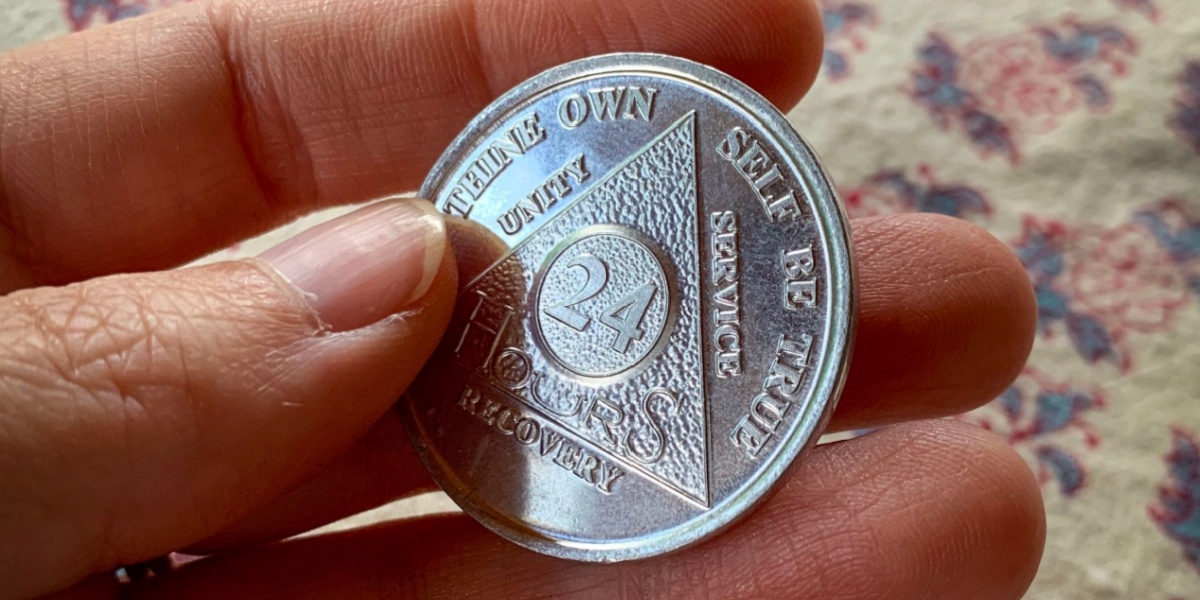Having completed Step 3 of Alcoholics Anonymous and asked for help from a higher power, Step 4 asks the participant to begin making a moral inventory of their character and who they are.
| Step 4 of Alcoholics Anonymous |
|---|
| "Made a searching and fearless moral inventory of ourselves." |
This step involves conducting a thorough and honest self-examination to identify personal strengths, weaknesses, and the impact of one's addiction. This lays the foundation for further recovery work.
- Step 4 is an intimate journey through personal character and history and lays the groundwork for the rest of the twelve steps. (Alternate sentence structure: Step 4 lays the groundwork for the remaining 12 steps as it is an intimate journey of one’s character and history.)
- Many AA groups will provide workbooks for members at this stage of the journey to assist with clarifying what the moral inventories of members look like.

What does the 4th step prayer mean?
The 4th step of Alcoholics Anonymous (AA) is as follows “made a searching and fearless moral inventory of ourselves.”
Step 4 is arguably one of the most important steps of the whole AA process. Once a person has decreed that they are powerless in the face of their addiction (step 1) and that they are releasing their control over to a higher power without whom they will fail (Steps 2 & 3), they will need to look inwards to see who they are.
Through discovering the true nature of personal character, a participant learns to identify the weaknesses that may have helped contribute to alcoholism and through reflection understand it.

Medical advisor
PhD, LCPC
It also allows the person to identify their strengths, ones which can be built on to overcome their weaknesses and seek the areas of themselves that need the most work through the process of AA. Step 4 is an intimate journey through personal character and history and serves to lay the groundwork for the rest of the twelve steps.
How do you make a moral inventory?
Creating a moral inventory of one's self sounds like a daunting task, one which many people find difficult to start. The requirements of this list are that you be honest with yourself about what makes up your character, including things you believe are positive and areas that hold you back.
Many AA groups will provide workbooks for members at this stage of the journey in order to assist with clarifying what members' moral inventories look like. Writing down the participant's moral inventory also helps solidify it, meaning they can return and evaluate it at later stages of the process.
What challenges do people face with Step 4?
For many people who are suffering from alcoholism, being honest with yourself and others is often a challenge. Many feel they are in control of their addiction and the amount they drink, even though they rarely aren’t. This makes Step 4 a particular challenge during recovery as it requires a frank and raw look at the flaws and strengths that make up the participant's character.
Step 4 can also be time-consuming. Some people - those in full-time employment, education, or who have families -can find it difficult to find hours in the day to spend time alone and reflect on what makes up their character. Overcoming time constraints can be difficult, but it is essential to spend even a small portion of every day searching within to define your character. Only then will a person be ready to advance to the next stages of AA.
Why is Step 4 important?
tepWithout first gaining insight into your personal strengths and weaknesses, forming an honest and frank overview of your character, it is hard to know which areas need to be addressed in subsequent Steps. The moral inventory also acts as a list of personal appeals to the participant's higher power, as we are making the basis for discussion at meetings which will eventually lead to personal growth.




